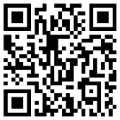Educational Game-Based Learning Media to Grow Learning Motivation in Computer and Basic Network Subjects in Vocational High Schools
Abstract
Full Text:
PDFReferences
G. T. Winandi, “Perencanaan Pendidikan Pada Masa Pasca Pandemi Covid-19,” in Prosiding Seminar Nasional Pascasarjana (PROSNAMPAS), 2020, pp. 315–317.
L. Sofyana and A. Rozaq, “Pembelajaran daring kombinasi berbasis whatsapp pada kelas karyawan prodi teknik informatika universitas pgri madiun,” J. Nas. Pendidik. Tek. Inform. JANAPATI, vol. 8, no. 1, pp. 81–86, 2019.
D. Lase, “Pendidikan di era revolusi industri 4.0,” SUNDERMANN J. Ilm. Teol. Pendidikan, Sains, Hum. dan Kebud., vol. 12, no. 2, pp. 28–43, 2019.
S. Salmia and A. M. Yusri, “Peran guru dalam pembelajaran abad 21 di masa pandemik covid-19,” Indones. J. Prim. Educ., vol. 5, no. 1, pp. 82–92, 2021.
L. G. M. Z. Atsani, “Transformasi media pembelajaran pada masa Pandemi COVID-19,” Al-Hikmah J. Stud. Islam, vol. 1, no. 1, pp. 82–93, 2020.
V. Malele and M. E. Ramaboka, “The design thinking approach to students STEAM projects,” Procedia CIRP, vol. 91, pp. 230–236, 2020, doi: Https://doi.org/10.1016/j.procir.2020.03.100.
I. P. Sari, A. H. Kartina, A. M. Pratiwi, F. Oktariana, M. F. Nasrulloh, and S. A. Zain, “Implementasi Metode Pendekatan Design Thinking dalam Pembuatan Aplikasi Happy Class Di Kampus UPI Cibiru,” Edsence J. Pendidik. Multimed., vol. 2, no. 1, pp. 45–55, 2020, doi: Https://doi.org/10.17509/edsence.v2i1.25131.
D. Kelley and T. Brown, “An introduction to Design Thinking. institute of Design at Stanford,” DOI https//doi. org/10.1027/2151-2604/a000142, 2018.
S. D. Akbar, Instrumen perangkat pembelajaran. Bandung: PT Remaja Rosdakarya, 2013.
S. Arikunto, Evaluasi Pendidikan, Edisi Revisi 2. Jakarta: Bumi Aksara, 2013.
DOI: http://dx.doi.org/10.17977/um010v6i12023p27-30
Refbacks
- There are currently no refbacks.
 | Letters in Information Technology Education (LITE) |

1.png)
1.png)
1.png)
4.png)
1.png)
.png)

3.png)
1.png)
1.png)
